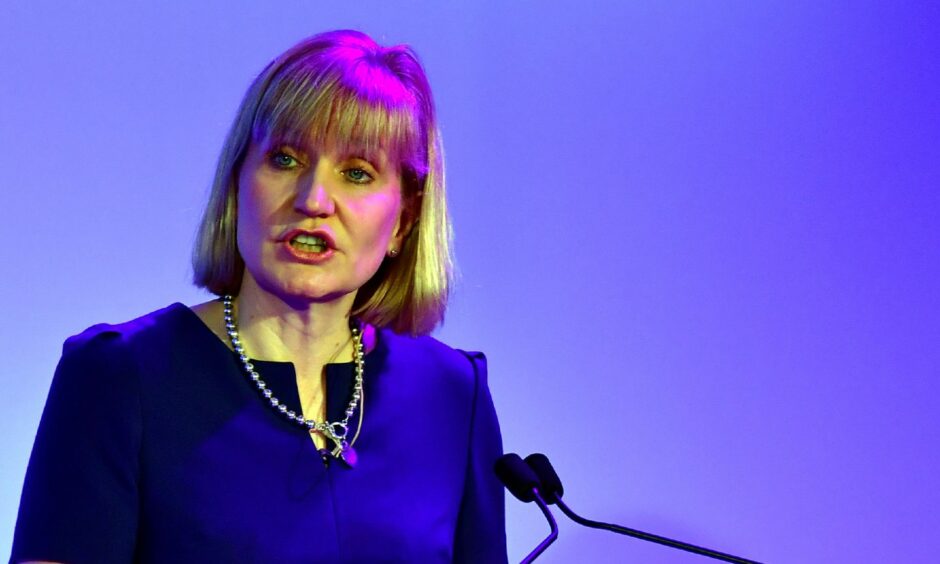Equinor has dismissed “speculation” suggesting it has “threatened to abandon” its £4.5 billion Rosebank project west of Shetland due to the windfall tax.
Citing an unnamed industry source, the Daily Telegraph said the Norwegian energy giant was reconsidering plans for the development.
Equinor reportedly confirmed as much in private, saying it wants the UK Government to change terms of the windfall tax – or energy profits levy – before it commits to the multi-billion-pound North Sea investment.
Rosebank claim played down
In a statement to Energy Voice, The Press and Journal’s sister publication, Equinor described the article as “speculation”.
But the company also said it stands behind Offshore Energies UK (OEUK)’s position on the levy.
Trade body OEUK has argued the windfall tax, which increased the headline rate of tax on oil companies’ profits by 25%, could lead to investment “formerly earmarked for the UK” going overseas.
If new taxes are imposed, there is always a negative impact on investor confidence.”
Deirdre Michie, CEO, Offshore Energies UK.
In a statement on Sunday, OEUK said the speculation over Rosebank and Shell telling analysts it is less likely to develop the £2bn Cambo project after the UK’s Government’s “profit raid” were the “first signs emerging of the potential damage to UK industry”.
OEUK chief executive Deirdre Michie said it was for Equinor to comment on its plans, but the tax was “likely to deter investments under consideration, for which funds have yet to be committed”.
She added: “Our industry is very proud to pay its taxes and support the UK Government and consumers, especially in difficult times like these.
Read our response to reports that the UK Government's new windfall tax may already be undermining the major investments needed to keep Britain's lights on here: https://t.co/FbADJp4aJd pic.twitter.com/JWyyEeFIoo
— Offshore Energies UK (@OEUK_) June 20, 2022
“The problem is that if new taxes are imposed, there is always a negative impact on investor confidence.
“In particular, such moves increase the cost of borrowing for new projects, making it more difficult to raise the money needed to maintain existing energy supplies and build the low carbon energy systems of the future.
“The result will be a decline in oil and gas production in years ahead – just when the UK most needs reliable sources of energy.”
The new levy includes an substantial increase to investment allowance to 80%, meaning total relief on spending is 91.25%.
Analysts have suggested Rosebank, which is due for a final investment decision next year, could be accelerated by the allowance.
Rosebank is one of the largest untapped reserves in UK waters. The project to develop it has previously been estimated at costing £4.5bn.
Equinor’s partner in the project, Siccar Point, has said the field is capable of producing 300 million barrels of oil.
In its statement to Energy Voice, Equinor said: “We were recently granted a licence extension and continue to work with our partners and stakeholders to ensure we progress and deliver the Rosebank project to strengthen UK energy security, create local value through highly skilled jobs and enable the UK to reach net-zero targets in line with the North Sea Transition Deal.”
Harbour chief appeals to chancellor
Meanwhile, North Sea operator Harbour Energy has reportedly sent a letter to Chancellor Rishi Sunak, slamming the “seriously flawed” windfall tax.
The Guardian said Harbour chief executive Linda Cook had called on the chancellor to urgently revise proposals for the levy, ahead of draft legislation likely in early July.
She also asked Mr Sunak to implement a “sunset” date for ending the levy in 2023, rather than 2025 as previously announced, the report said.
Ms Cook is quoted as saying smaller firms will be worse-hit than majors, predicting large independents including Harbour, Neo, Ithaca and Spirit will pay out more than £2.5bn.


Conversation